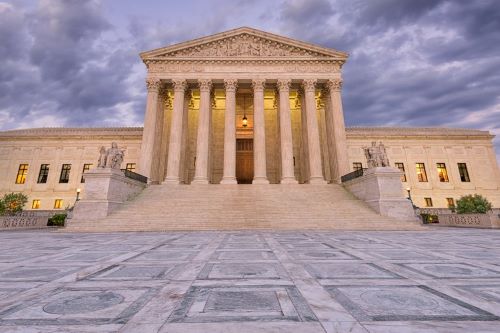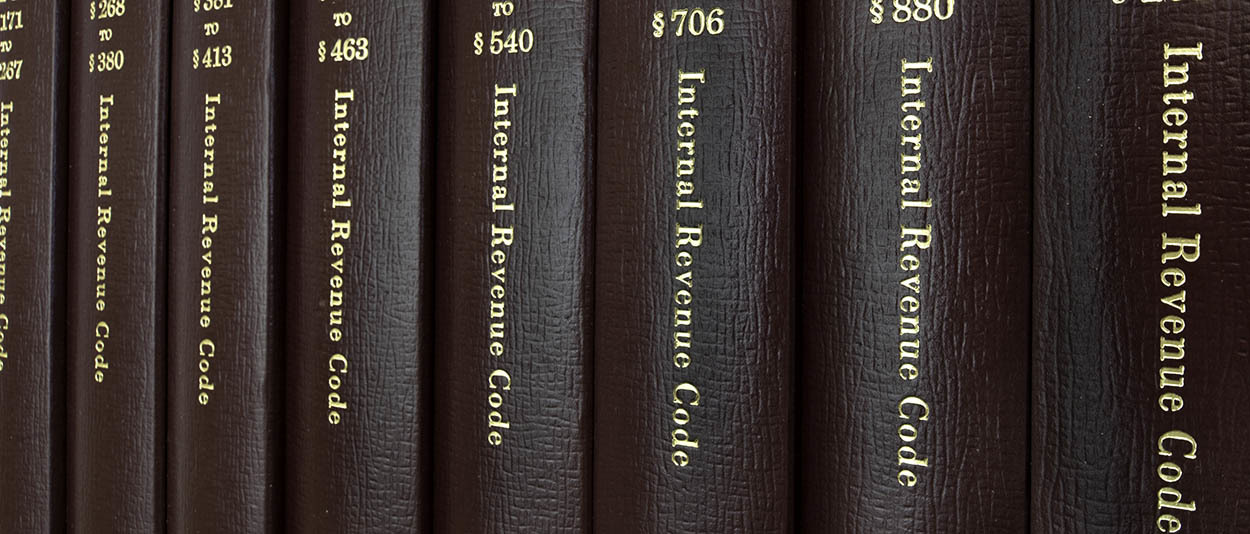Now that the scurrying around and worrying relative to developments impacting the Corporate Transparency Act (“CTA”) that were coming at us with laser speed are on a slow simmer, I can turn my attention back to my multi-part series on Subchapter S. Don’t worry, I am not abandoning my coverage of the CTA. I intend to report any future developments, earth-shattering or otherwise.
INTRODUCTION
 At the most fundamental level, corporations with an election in effect under Code Section 1362 are flowthrough entities. Items of income, loss, deduction and credit pass through to the shareholders under Code Section 1366 on a pro-rata basis. Likewise, all operating and liquidating distributions must be made to the shareholders in strict proportion to share ownership. Unlike Subchapter K, which allows in certain circumstances special allocations of the pass-through items and disproportionate distributions, Subchapter S is not so forgiving.
At the most fundamental level, corporations with an election in effect under Code Section 1362 are flowthrough entities. Items of income, loss, deduction and credit pass through to the shareholders under Code Section 1366 on a pro-rata basis. Likewise, all operating and liquidating distributions must be made to the shareholders in strict proportion to share ownership. Unlike Subchapter K, which allows in certain circumstances special allocations of the pass-through items and disproportionate distributions, Subchapter S is not so forgiving.
These concepts seem mundane. Unfortunately, in practice, they can sometimes create havoc for the unwary.
In this Part XVI of my multi-part series on some of the not-so-obvious aspects of Subchapter S, I explore how the flowthrough of items of income, loss, deduction and credit are impacted when there are changes in the ownership of an S corporation during the taxable year.
 It was about 5:30 p.m. PT last Friday, March 21, 2025, and I was about to sign off from my computer after a long week and turn my attention to college basketball, when I received an email from FinCEN. The message was that FinCEN had issued an interim final rule relative to the Corporate Transparency Act (“CTA”).
It was about 5:30 p.m. PT last Friday, March 21, 2025, and I was about to sign off from my computer after a long week and turn my attention to college basketball, when I received an email from FinCEN. The message was that FinCEN had issued an interim final rule relative to the Corporate Transparency Act (“CTA”).
I am embarrassed to admit that my curiosity got the best of me. Rather than jump into a weekend of exciting college basketball, I chose to read the 36-page interim final rule (the “IFR”). Yes, I am a bit consumed with the saga of the CTA. However, thanks to my cable provider, my DVR had been busy all day recording the games. So, after scouring the IFR, I was able to enjoy a late night of college hoops.
 I was hoping to take a short breather from covering the Corporate Transparency Act (“CTA”). However, I am getting several inquiries from attorneys and business owners, asking if they have missed anything with respect to the CTA and more specifically whether the CTA is dead or alive. Accordingly, I decided to provide readers with a brief update.
I was hoping to take a short breather from covering the Corporate Transparency Act (“CTA”). However, I am getting several inquiries from attorneys and business owners, asking if they have missed anything with respect to the CTA and more specifically whether the CTA is dead or alive. Accordingly, I decided to provide readers with a brief update.
I apologize in advance if this report creates stress or anxiety. Unfortunately, this entire ordeal has created unrest for business owners and their advisers. We continue to hope that the saga will come to an end.
 If you feel punch-drunk from the rapid-fire updates to the Corporate Transparency Act (“CTA”), you are not alone. It is hard to keep up with the madness surrounding this law.
If you feel punch-drunk from the rapid-fire updates to the Corporate Transparency Act (“CTA”), you are not alone. It is hard to keep up with the madness surrounding this law.
Hoping not to stupefy readers, I will address what I believe is the latest major development in the life of the CTA. The Treasury made an earth-shattering announcement this past Sunday that can be broken down into the following two bite-size components:
 On Thursday, February 27, 2025, FinCEN announced that it will not issue any penalties or pursue enforcement action against reporting companies for the mere failure to meet the current filing deadlines. That news for many is like the title to British songwriter and singer Zoë’s hit song Sunshine on a Rainy Day!
On Thursday, February 27, 2025, FinCEN announced that it will not issue any penalties or pursue enforcement action against reporting companies for the mere failure to meet the current filing deadlines. That news for many is like the title to British songwriter and singer Zoë’s hit song Sunshine on a Rainy Day!
Be aware, this reprieve only lasts until FinCEN issues its interim final rules and they become effective. These rules are expected to be issued on or before March 21, 2025. Consequently, for those reporting companies that have not registered yet, they need to keep a keen eye on the ball. Alternatively, those companies may want to consider filing before the extended deadline to avoid a foot fault.
 I was hoping that I could report to my readers that the turbulent and lengthy ride of the Corporate Transparency Act (“CTA”) was, one way or another, finally over! Unfortunately, I am unable to deliver that news today. Instead, I am briefly reporting on the most recent development in the crazy saga.
I was hoping that I could report to my readers that the turbulent and lengthy ride of the Corporate Transparency Act (“CTA”) was, one way or another, finally over! Unfortunately, I am unable to deliver that news today. Instead, I am briefly reporting on the most recent development in the crazy saga.
From previous reporting, you may recall that, on January 23, 2025, the U.S. Supreme Court, in Texas Top Cop Shop, Inc. et al v. Merrick Garland, Attorney General of the United States et al., lifted the Fifth Circuit’s injunction, that was preventing the government from enforcing the CTA. However, as also reported, the SCOTUS decision had no practical impact on the government’s ability to enforce the CTA because another court (the Eastern District of Texas) in a different case (Smith et. al. v. U.S. Department of Treasury et. al.) had issued (on January 7, 2025) a nationwide injunction against the government’s enforcement of the CTA. Accordingly, that court’s injunction, despite the high court’s decision in Texas Top Cop Shot, Inc., remained in place.
 In this Part XV of my multi-part series on some of the not-so-obvious aspects of Subchapter S, I explore a potential advantage that the S corporation has over the C corporation.
In this Part XV of my multi-part series on some of the not-so-obvious aspects of Subchapter S, I explore a potential advantage that the S corporation has over the C corporation.
The Patient Protection and Affordable Care Act, as modified by the Health Care and Education Reconciliation Act of 2010, effective January 1, 2013, imposes a three and eight-tenths percent (3.80%) Medicare tax (the “Net Investment Income Tax” or the “NIIT”) under Code § 1411 on the lesser of:
 As I reported yesterday, the U.S. Supreme Court, in Texas Top Cop Shop, Inc. et al v. Merrick Garland, Attorney General of the United States et al., lifted the Fifth Circuit’s injunction, that had been preventing the government from enforcing the Corporate Transparency Act (“CTA”). However, as reported by Mengqi Sun of The Wall Street Journal, there is another Texas court (the Eastern District of Texas) where the judge issued a nationwide injunction against the government’s enforcement of the CTA and that the injunction remains in place. The Wall Street Journal further reported that there has been no appeal of that decision to a higher court.
As I reported yesterday, the U.S. Supreme Court, in Texas Top Cop Shop, Inc. et al v. Merrick Garland, Attorney General of the United States et al., lifted the Fifth Circuit’s injunction, that had been preventing the government from enforcing the Corporate Transparency Act (“CTA”). However, as reported by Mengqi Sun of The Wall Street Journal, there is another Texas court (the Eastern District of Texas) where the judge issued a nationwide injunction against the government’s enforcement of the CTA and that the injunction remains in place. The Wall Street Journal further reported that there has been no appeal of that decision to a higher court.
 I last reported on December 27, 2024, that the Corporate Transparency Act (“CTA”) hit yet another speed bump. The U.S. Court of Appeals for the Fifth Circuit (“Fifth Circuit”) put the CTA on ice as of December 24, 2024, restraining the government from enforcing the new law while it heard the underlying matter in Texas Top Cop Shop, Inc. et al v. Merrick Garland, Attorney General of the United States et al.
I last reported on December 27, 2024, that the Corporate Transparency Act (“CTA”) hit yet another speed bump. The U.S. Court of Appeals for the Fifth Circuit (“Fifth Circuit”) put the CTA on ice as of December 24, 2024, restraining the government from enforcing the new law while it heard the underlying matter in Texas Top Cop Shop, Inc. et al v. Merrick Garland, Attorney General of the United States et al.
On December 31, 2024, the government petitioned the U.S. Supreme Court (“Supreme Court”), asking it to remove the stay, allowing the government to enforce the CTA pending the outcome of the Fifth Circuit case and the Supreme Court’s decision should it accept a writ of certiorari and ultimately rule on the constitutionality of the CTA.
 In this Part XIV of my multi-part series on some of the not-so-obvious aspects of Subchapter S, I explore a narrow aspect of Subchapter S that is often ignored or forgotten. An S corporation is not always a mere extension of its shareholders.
In this Part XIV of my multi-part series on some of the not-so-obvious aspects of Subchapter S, I explore a narrow aspect of Subchapter S that is often ignored or forgotten. An S corporation is not always a mere extension of its shareholders.
Because of the pass-through nature of Subchapter S, taxpayers and their advisers often conclude that an S corporation is a mere extension of its shareholders. That is not always the case. A 2012 decision of the U.S. Tax Court provides a good illustration of this point.
Larry J. Brant
Editor
Larry J. Brant is a Shareholder and the Chair of the Tax & Benefits practice group at Foster Garvey, a law firm based out of the Pacific Northwest, with offices in Seattle, Washington; Portland, Oregon; Washington, D.C.; New York, New York, Spokane, Washington; Tulsa, Oklahoma; and Beijing, China. Mr. Brant is licensed to practice in Oregon and Washington. His practice focuses on tax, tax controversy and transactions. Mr. Brant is a past Chair of the Oregon State Bar Taxation Section. He was the long-term Chair of the Oregon Tax Institute, and is currently a member of the Board of Directors of the Portland Tax Forum. Mr. Brant has served as an adjunct professor, teaching corporate taxation, at Northwestern School of Law, Lewis and Clark College. He is an Expert Contributor to Thomson Reuters Checkpoint Catalyst. Mr. Brant is a Fellow in the American College of Tax Counsel. He publishes articles on numerous income tax issues, including Taxation of S Corporations, Reasonable Compensation, Circular 230, Worker Classification, IRC § 1031 Exchanges, Choice of Entity, Entity Tax Classification, and State and Local Taxation. Mr. Brant is a frequent lecturer at local, regional and national tax and business conferences for CPAs and attorneys. He was the 2015 Recipient of the Oregon State Bar Tax Section Award of Merit.

